| | | | | | | Presented By OurCrowd | | | | Axios World | | By Dave Lawler ·Sep 27, 2021 | | Welcome back to Axios World. - This evening (1,876 words, 7 minutes) we're focused on the German elections.
- We'll be guided by Axios' Zach Basu, who spent the week in Germany reporting on the race, and Axios fellow Fabienne Kinzelmann, our resident expert on German politics.
New arrival? Subscribe | | | | | | 1 big thing: Social Democrats' win has big stakes for Europe | 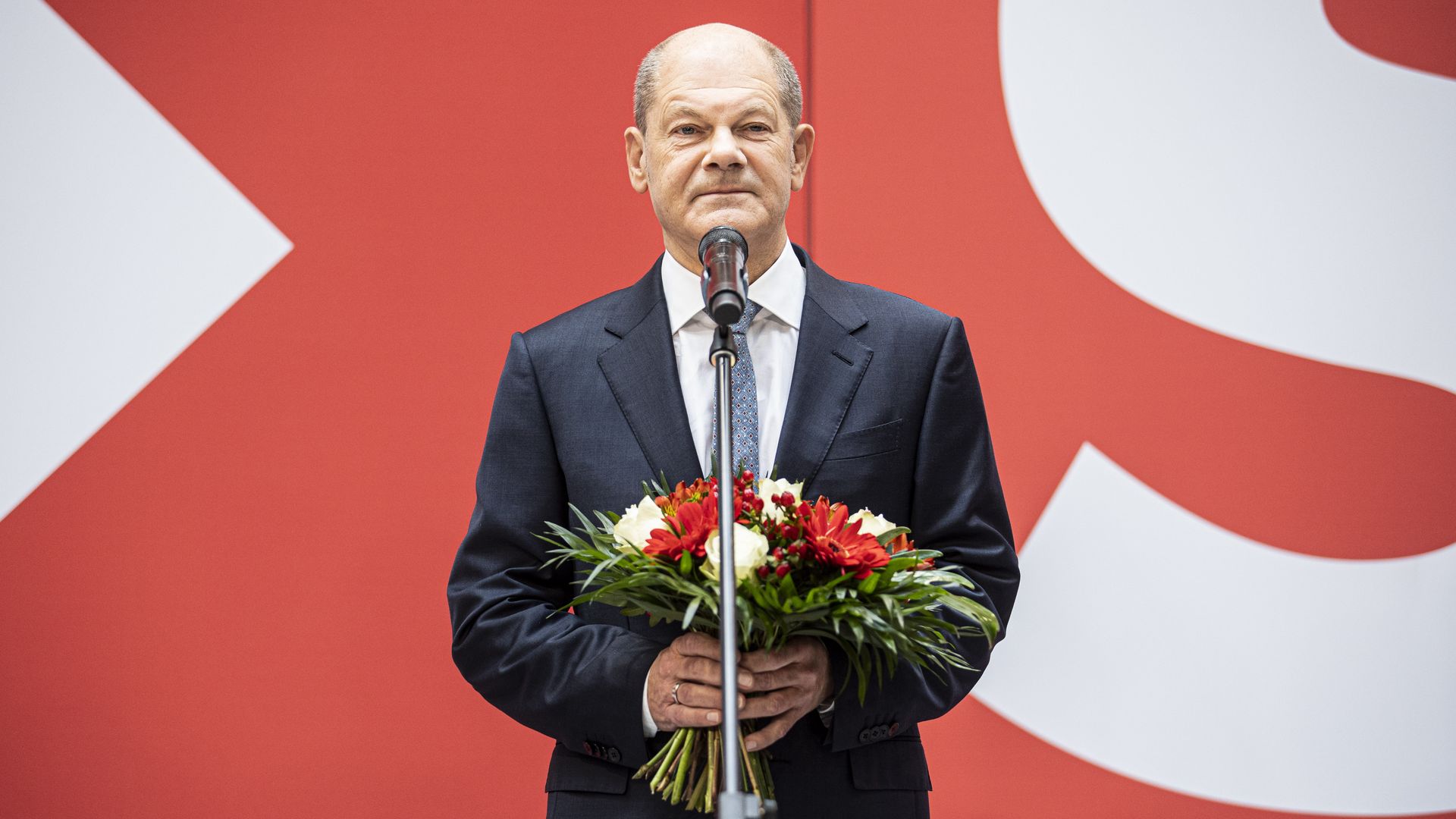 | | | Olaf Scholz caught the bouquet on Sunday. Photo: Florian Gaertner/Photothek via Getty | | | | BERLIN — Angela Merkel's political farewell was spoiled Sunday night when the Social Democrats (SPD) narrowly claimed victory in Germany's elections, just four years after suffering their worst loss since World War II, Zach writes. Why it matters: The stunning political comeback could swing the balance of power in Germany leftward after 16 years of rule by Merkel's conservative bloc, and it could lay the groundwork for a more ambitious European Union. SPD chancellor candidate Olaf Scholz, who as Merkel's finance minister championed the EU's joint COVID recovery fund and has argued for deeper political integration, made strengthening the EU one of the main planks of his platform. - Merkel was a strong defender of the European project, but she was cautious about further integration.
- Scholz could now join France's Emmanuel Macron and Italy's Mario Draghi at the center of a powerful pro-Europe axis.
- That shift would come just as the bloc is debating the economic recovery from the pandemic and its place in an era of U.S.-China competition.
Zoom in: Germany alone "won't make a difference" in a world dominated by the U.S., China and other rising powers, Wolfgang Schmidt, Scholz's closest aide, told Axios. - That's why Scholz believes "the biggest, most important national issue of interest of Germany is the European Union," because "only with the bloc of 470 million that we are, do we represent and bring some weight to the table," Schmidt said.
- "Obviously, 'vote for Europe' is not like this big thing for voters," Schmidt acknowledged. But "European sovereignty" is the answer to the uncertainties that do concern Germans, from pandemics to climate change.
What to watch: Scholz has said his first international visit would be to Paris, and he echoed Macron during the campaign's last TV debate in saying Germany's most important task was to ensure "a strong and sovereign Europe." - He'll also stress the value of the transatlantic relationship with the U.S., says Lars Klingbeil, the SPD's secretary-general. But asked about the U.S.-China competition under Trump and Biden, Klingbeil says, "we have a different approach."
- "If you look at Merkel's China policy, I think that Olaf Scholz will be more similar to this than U.S. policy toward China," Klingbeil said.
Between the lines: Merkel prioritized economic ties with China, which is Germany's largest trading partner, at the expense of challenging Beijing's authoritarianism and human rights abuses. - While Scholz is prepared to follow in those footsteps, the leaders of the Greens and pro-business Free Democrats — with whom Scholz is seeking to form a coalition government — opposed a controversial investment deal Merkel helped seal with Beijing, and they may push Scholz to take a harder line.
The big picture: Germany could join the club of European countries led by social democratic parties, which includes Norway, Sweden, Finland, Denmark, Spain and Portugal. - Five of those parties won power within the last five years — a remarkable change of fate for Europe's progressives, which some EU watchers had pronounced dead as far-right populists surged across the continent.
|     | | | | | | 2. Jockeying to replace Merkel begins |  Data: Preliminary results from German Federal Returning Officer; Chart: Sara Wise/Axios Scholz's come-from-behind victory left the SPD just 10 seats ahead of the Christian Democrats (CDU), setting the stage for difficult coalition negotiations, Fabienne writes. State of play: Scholz has said he'll seek to form a government, but so too has Armin Laschet, Merkel's successor as leader of the CDU, which failed to finish first for the first time in 16 years. - With a renewal of the unpopular "grand coalition" between the center-left SPD and center-right CDU appearing unlikely, either Scholz or Laschet will need to bring two smaller parties on board to become chancellor.
That means the election's true winners may be the Greens and the pro-business Free Democrats (FDP), who will likely serve as the junior partners in either a "traffic light" (SPD-Greens-FDP) or "Jamaica" (CDU-Greens-FDP) coalition, so named because of the parties' colors. - As the leader of the largest party, Scholz is best-positioned to become chancellor. He has said he wants to move quickly to reach a deal with the Greens and the FDP, but coalition negotiations typically drag on for weeks. After the last election in September 2017, it took 5½ months to form a government.
- Coming off the CDU's worst electoral performance ever, Laschet will have a hard time staking a claim to the chancellery. He may not survive in his position long enough to handle the negotiations himself, as some in his party are reportedly pushing him to resign.
Worth noting: Only around 15% of German voters supported the far-left and extreme-right — 7% less than in 2017. All parties ruled out negotiations with the far-right AfD (10.3%). The Left (4.9%) also lost ground. - However, the AfD finished first in two East German states.
|     | | | | | | 3. What to watch in the negotiations | 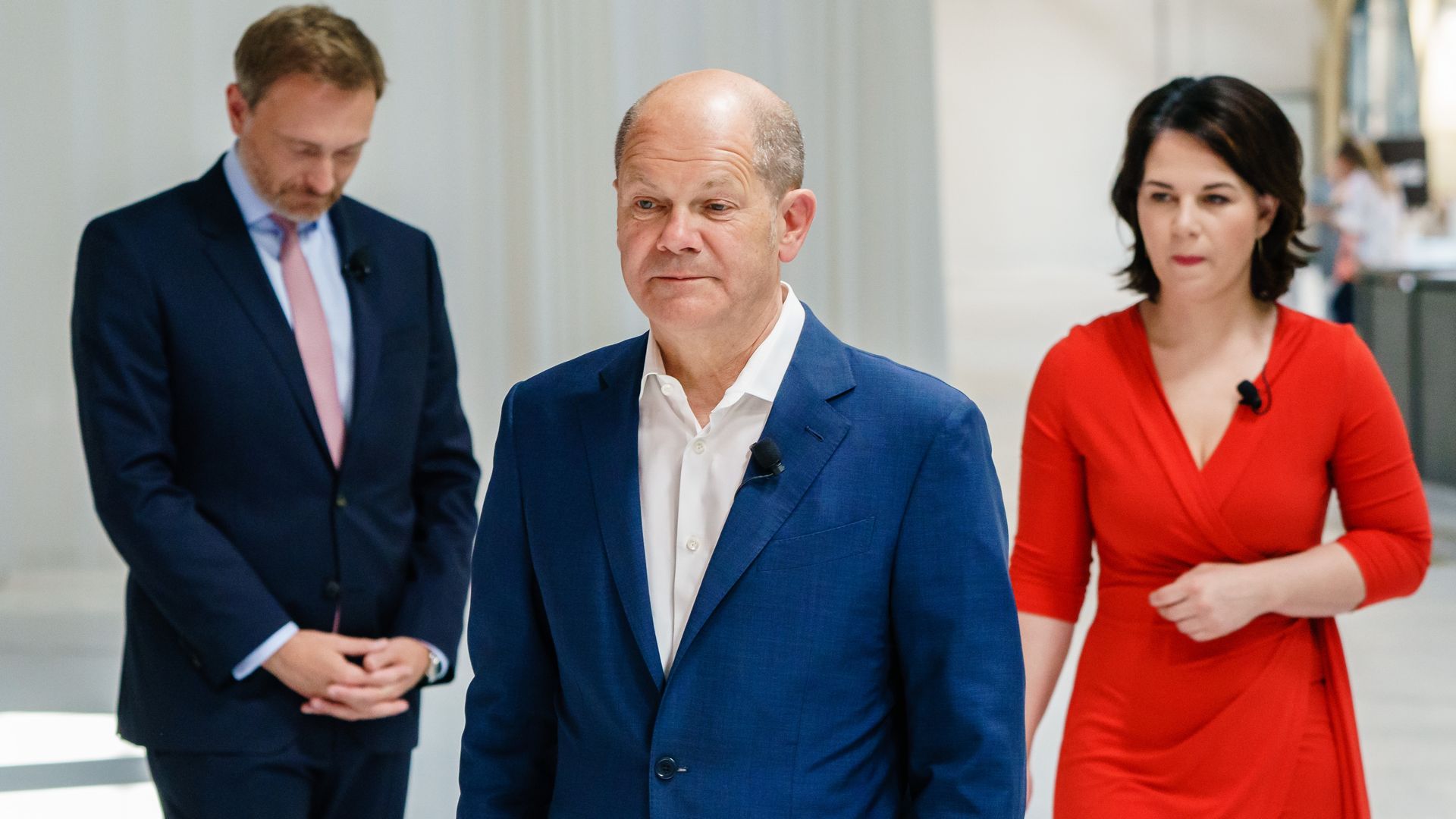 | | | Will you be my traffic light? Lindner (left) of the FDP, Scholz (C) and Baerbock of the Greens. Photo: Clemens Bilan/Pool/Getty | | | | The breakdown of political power in Germany has shifted after the election, and the next government will likely include three parties with very different platforms for the first time, Fabienne continues. Breaking it down: While the SPD and the Greens are largely pulling in the same direction on many issues — such as the wealth tax or a relaxation of the debt brake — it will be more difficult to reach an agreement with the FDP, which considers tax increases a red line. - The FDP would undoubtedly favor a CDU-led coalition, but party leader Christian Lindner has announced "preliminary explorations with the Greens" to move toward a common position.
- Referring to the lack of common ground between the parties on Monday, Greens chancellor candidate Annalena Baerbock joked, "I assume we all love to eat ice cream."
What to watch: The main "trophy" over which the parties will likely tussle in negotiations is the Ministry of Finance, due to its influence on other ministries and role in vital areas like taxation, climate action and the post-COVID economy. Scholz currently serves as finance minister. - The FDP (11.5%) is riding high after a strong result, and Lindner is likely to push for the job.
- The Greens (14.8%) won more seats than ever before but still fell short of expectations after peaking at around 28% in the polls. Reports in German media suggest Baerbock, is likely to be superseded by party co-leader Robert Habeck as vice chancellor in the next government.
|     | | | | | | A message from OurCrowd | | OurCrowd breaks down private market barriers for investors | | | 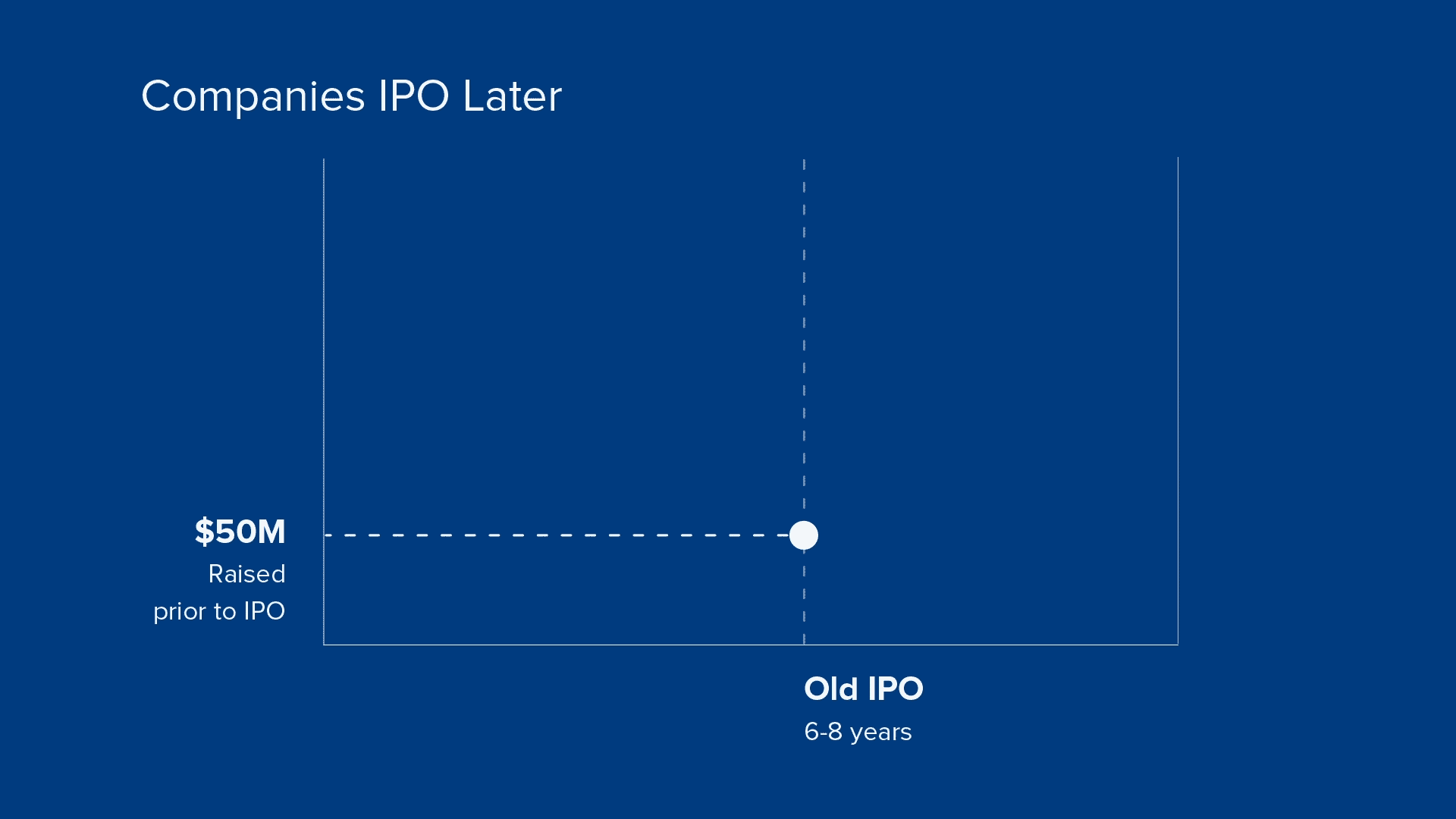 | | | | Problem: Startups are staying private longer, keeping investment growth behind closed doors. Solution: OurCrowd is changing that. They have 73K members and have invested $1B+ in companies like Lemonade and Beyond Meat — pre-IPO. Get in early on tomorrow's big deal - with OurCrowd. | | | | | | Bonus: Where in the world? |  | | | Screengrab via Apple maps. | | | | Today we're visiting a largely uninhabited archipelago of small islands and reefs with major geopolitical significance as they are claimed at least in part by six countries, five of which have military outposts there. - The islands are too small to see, but the red pin is somewhere in the middle. Can you name the archipelago and the six countries with claims to it?
Scroll to the bottom for the answer. |     | | | | | | 4. Meet the chancellor-in-waiting |  | | | Scholz passes Merkel. Photo: Omer Messinger/Getty Images | | | | Scholz's advisers like to call him "Angela Merkel with a plan." His critics say he might be Merkel without the clout, Zach and I write. The big picture: Scholz, 63, has positioned himself as a natural heir to Merkel as a boring, competent centrist. His advisers say one challenge for anyone seeking to replace Merkel is that she made Germans feel that they didn't have to worry too much about politics — she would take care of it, everything would be fine. - One former SPD leader likes to say that he'd feel perfectly safe boarding a flight piloted by Merkel — but would have no idea where it was going because she had no clear vision for the direction of Germany.
- On issues like climate, SPD officials contend, Merkel had no real plan, but Scholz does.
Still, senior European diplomats tell Axios that if Scholz does step into Merkel's chair, he won't instantly command Europe's top table in the way she did for so long. - Even those who were at times frustrated with Merkel acknowledged her skill and tirelessness in negotiations as the EU faced a string of crises.
- Scholz would still have the heft that comes from leading Europe's economic engine, and he's well-known in Brussels after 3½ years as finance minister.
- But even if he's coming to the table with more plans than she ever did, he'll have a hard time matching her track record of getting deals done.
Go deeper: End of Merkel era poses big questions for Europe |     | | | | | | 5. Global news roundup | 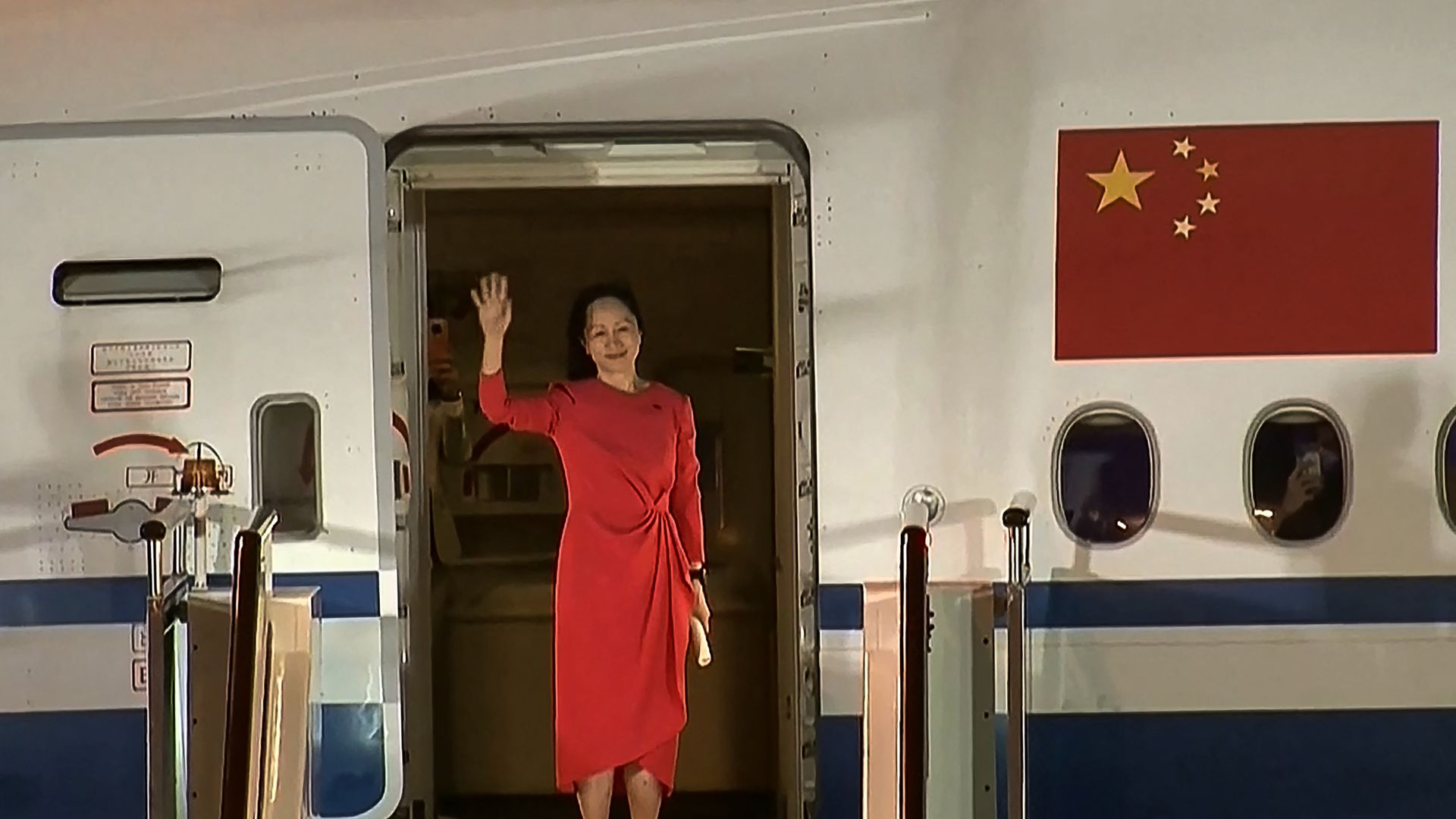 | | | Meng Wanzhou touches down in China. Photo: CCTV/AFP via Getty | | | | 1. Cheering crowds greeted Huawei CFO Meng Wanzhou as she landed back in Shenzhen on Saturday after reaching a deal with U.S. prosecutors to resolve a case involving the evasion of sanctions on Iran. She had been held in Canada for three years awaiting extradition. - China also released two Canadians it had arrested, Michael Kovrig and Michael Spavor, seeming to confirm their status as hostages (Beijing claims the cases were unrelated).
- State media claimed the news proved that China would forcefully defend its citizens all over the globe. But some online commentators questioned why two men they'd been told were spies and criminals had to be released for an innocent Chinese businesswoman to be freed, WaPo reports.
2. Chinese regulators banded together to ban all cryptocurrency activity on Friday, Axios' Courtenay Brown reports. - One reason: To stamp out competition to its own digital currency before a potential rollout next year
3. Nearly two-thirds of Swiss voters backed a referendum to approve same-sex marriage on Sunday. 4. New rules allowing fully vaccinated international travelers to enter the U.S. beginning in November will exclude those vaccinated by Russia's Sputnik V. - Meanwhile the U.K. is banning people who received their vaccines in much of the world — all of Africa, for example — apparently due to concerns about the trustworthiness of their proof of vaccination.
5. Vietnam is in a tough spot. It implemented a strict lockdown to slow a surge in cases, but now foreign manufacturers — which account for around half of GDP — are starting to shift production elsewhere, the FT reports. |     | | | | | | 6. Myanmar and Afghanistan silent at UN | 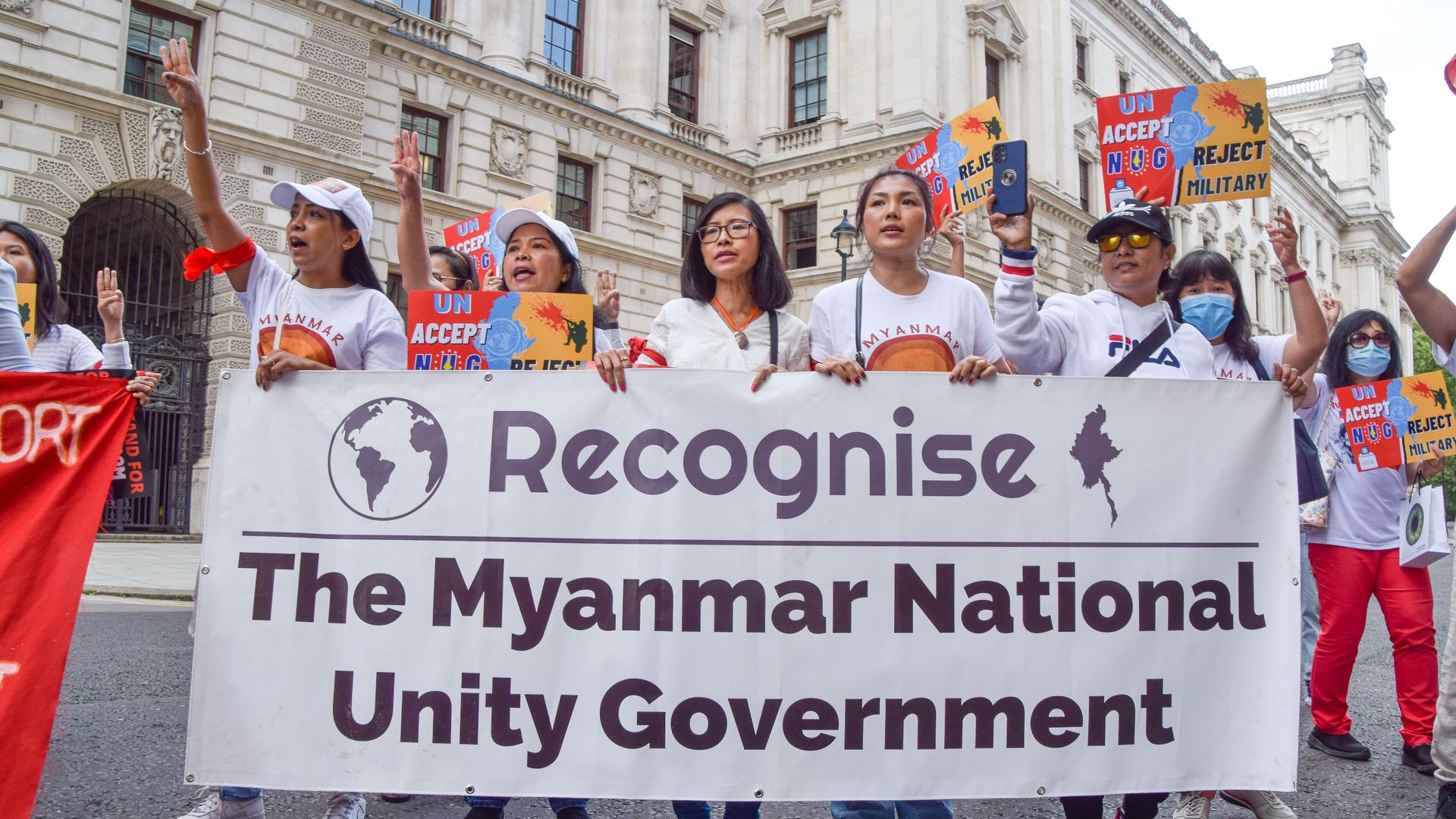 | | | Protesters in London call for the international community to recognize Myanmar's shadow government. Photo: Vuk Valcic/SOPA Images/LightRocket via Getty | | | | Two countries that are currently the focus of intense international attention were absent from the UN General Assembly speakers' list: Afghanistan and Myanmar. The backstory: In both cases, the accredited ambassador is a representative of an ousted government. - In Afghanistan's case, the Taliban picked a representative of their own, but the Taliban government is not internationally recognized and the UN's credentials committee did not convene to determine who the speaker should be.
- In Myanmar's case, the U.S., China and Russia worked out a compromise whereby the representative of the democratic government that was deposed in February will keep his job but won't address the assembly.
The big picture: The civil disobedience campaign against the ruling junta in Myanmar is turning increasingly violent. - The shadow government declared a "people's defensive war" earlier this month, and dozens of new militias have been formed, often allying with ethnic forces that were already battling the military.
- All of this currently looks more likely to produce violence and chaos than a restoration of democracy, at least in the near term.
In Afghanistan, there are signs that the draconian Taliban era of the 1990s is returning. - The bodies of four executed kidnapping suspects were recently displayed publicly in Herat, and a spokesperson told AP that punishments including hand amputations for theft are returning.
|     | | | | | | 7. Stories we're watching | 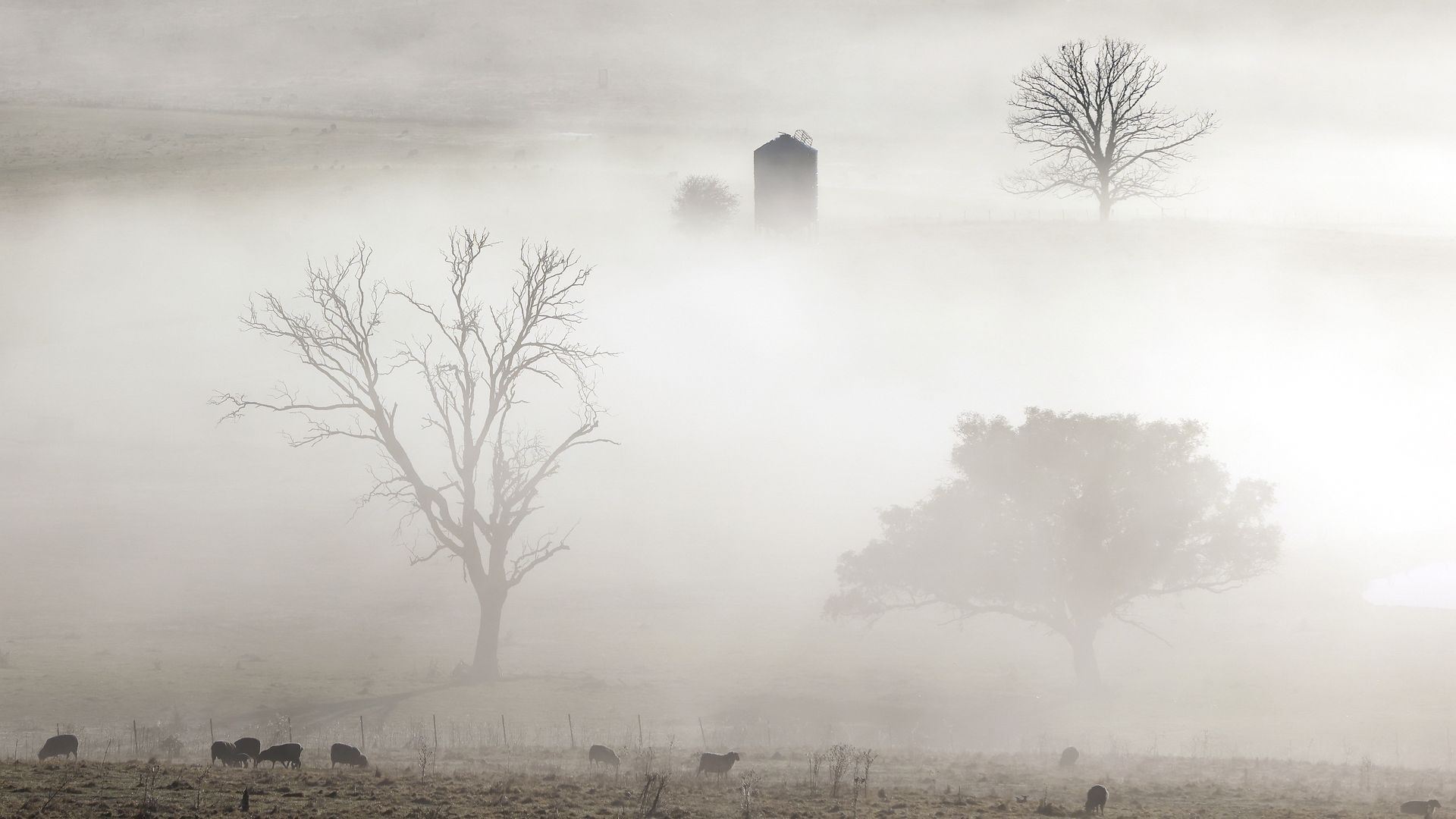 | | | A foggy morning in Orange, Australia. Photo: Mark Evans/Getty Images | | | - Evergrande's moment of truth
- Iran backtracks on nuclear monitoring
- U.S. ranks No. 47 on vaccinations
- U.S. special envoy to visit Sudan after coup attempt
- Treasury waivers allow aid to Afghanistan
- San Marino legalizes abortion, undoing centuries-old ban
- What "success" means at the UN Climate Summit in Glasgow
Quoted: "If you send us vaccines and we use those vaccines, and you say you don't recognize people that have been immunized, it sends a very challenging message for us." — African CDC director John Nkengasong on the U.K.'s policy of distinguishing between where travelers got their shots |     | | | | | | A message from OurCrowd | | Accelerate global success with an OurCrowd co-investment | | | 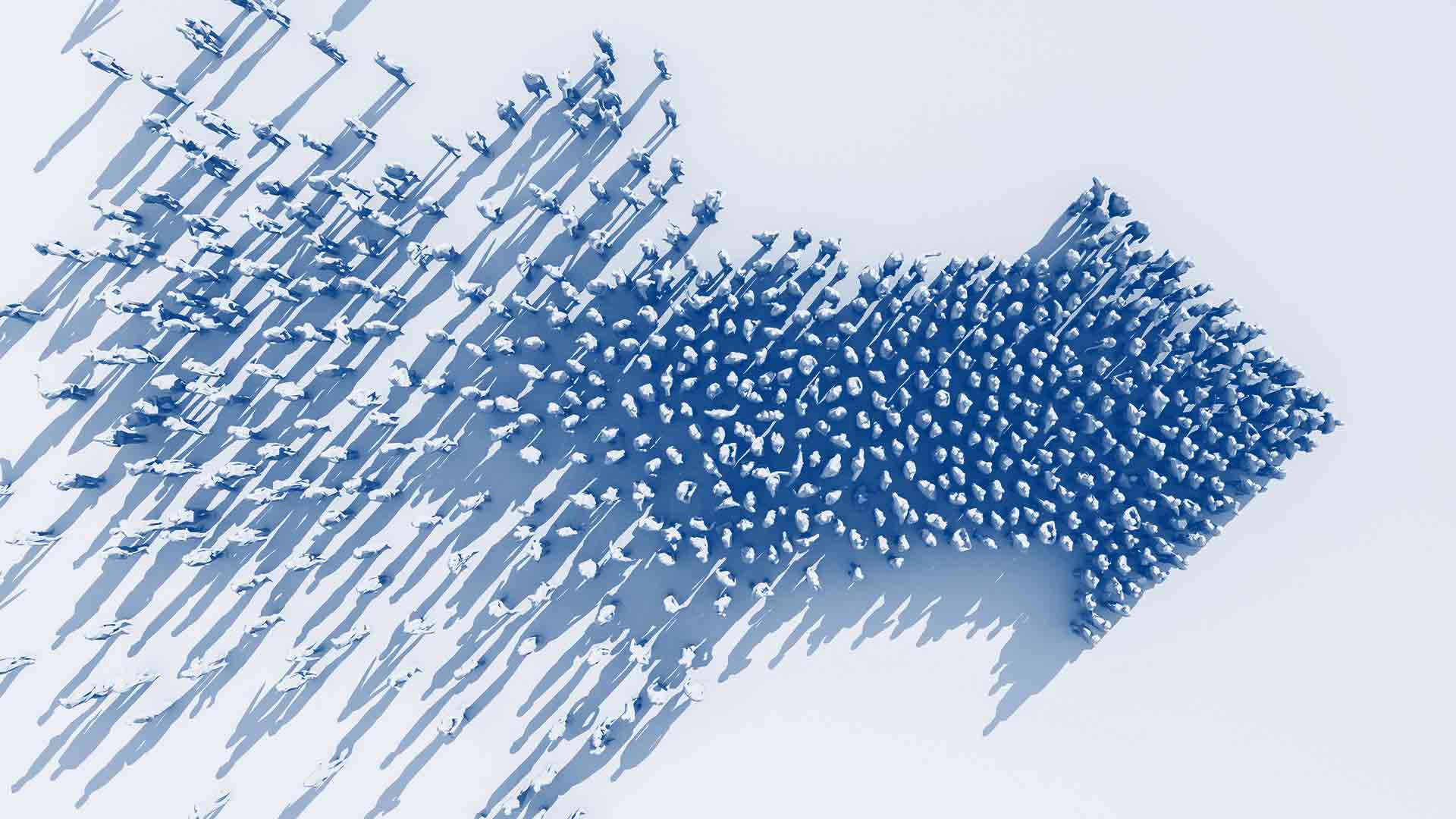 | | | | OurCrowd's global network of 73K+ members and 1000+ MNC's (from Honda to P&G and Travelers to Pepsico), accelerates the success of startups. Typical rounds are $2-$20M, with opportunity for more alongside institutional investors. Leverage the OurCrowd network to accelerate startup success! | | | | Answer: China, Malaysia, the Philippines, Taiwan and Vietnam all have multiple outposts in the Spratly Islands, and Brunei claims a portion as well. |  | | It'll help you deliver employee communications more effectively. | | | | | | Axios thanks our partners for supporting our newsletters. If you're interested in advertising, learn more here.
Sponsorship has no influence on editorial content. Axios, 3100 Clarendon Blvd, Suite 1300, Arlington VA 22201 | | | You received this email because you signed up for newsletters from Axios.
Change your preferences or unsubscribe here. | | | Was this email forwarded to you?
Sign up now to get Axios in your inbox. | | | | Follow Axios on social media:    | | | | | |












No comments:
Post a Comment